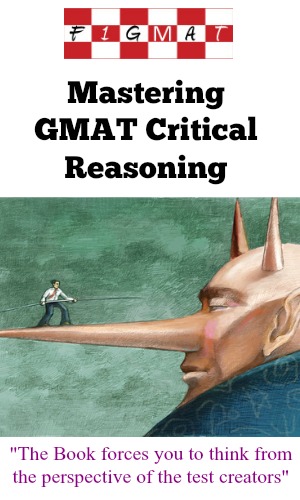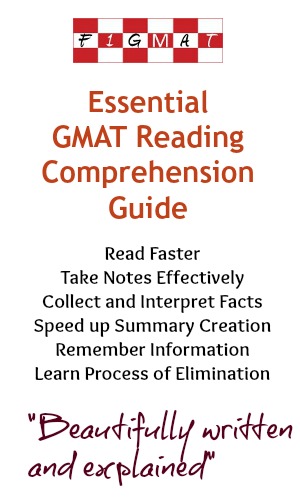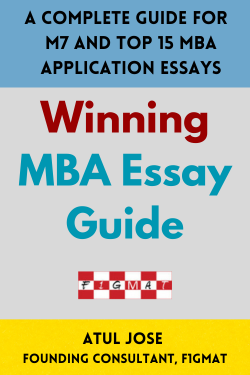One GMAT Reading Comprehension question type that you will rarely encounter is the style or tone/attitude question. By style, the test creators are not asking you to compare the style of the prose to the works of some of the renowned authors. It’s another term used to describe the tone/attitude of the author.
GMAC selects passages that are respectful to communities, nations, leaders, even tyrants of notorious records. One reason for this is the source material. They are research papers and not op-eds.
Therefore, the chance that the bias of the author is translated to extreme qualifiers in passages is rare.
The clues are in the nature in which the author builds the case, and the selectivity with which she presents her evidence and counter-evidences to support the argument. It helps to know about the subject matter, but understanding how the author subtly uses qualifiers to describe a situation or a person, will allow GMAT test takers to spot the feeling of the author. They might be disguised as objective observation, but biases/feeling cannot be hidden behind facts. It will come out.
The question will be phrased as:
Which of the following best describes the tone of the passage?
The author’s attitude towards capitalism can be best described as:
With the quotes on statistics about “welfare capitalism” in lines 23-25, what can be concluded about the author’s attitude towards capitalism?
Steps to answer GMAT Style/Tone/Attitude reading comprehension Questions
1) Emotions or feelings no matter how diverse can be categorized into three buckets: positive, negative or neutral. Look for descriptive words, adjective or adverbs used by the author and categorize them under each bucket.
2) Label the emotions inside the bucket
Positive: Sympathy (3), Appreciation (2)
Negative: Anger (2)
Neutral: Objectivity (2)
3) In case of a tie, read the concluding paragraph. Most authors conclude strongly with a clear opinion. If the emotions labelled in the final paragraph favor one of the tied buckets, pick the positive, negative, or neutral emotion emphasized in the paragraph as the winner.
Let’s use our approach to solve a passage about Stock Buyback.
<Start of Passage>
As cited by the Economist Thomas Piketty - In 2007, before the Financial meltdown, the richest 0.1% of the household earned 12.3% of all U.S Incomes, even exceeding the 11.5% in 1928, during the biggest bubble preceding the great depression. With the meltdown of 2008, the income share fell rapidly only to recover four years later to 11.3%. When the majority of the top executives fall within the richest 0.1%, the incentive to make decisions that benefit the shareholders collectively
.....
<End of Passage>
The author's attitude toward share buyback can be best described as:
A. Mild Hope
B. Mild Skepticism
C. Objective Criticism
D. Cautious optimism
E. Strong Skepticism
Included in F1GMAT's Essential GMAT Reading Comprehension Guide: Complete Passage and Steps to answer the Attitude of the Author GMAT RC Question
Download Essential GMAT RC Guide
About the Author

I am Atul Jose - the Founding Consultant at F1GMAT.
Over the past 15 years, I have helped MBA applicants gain admissions to Harvard, Stanford, Wharton, MIT, Chicago Booth, Kellogg, Columbia, Haas, Yale, NYU Stern, Ross, Duke Fuqua, Darden, Tuck, IMD, London Business School, INSEAD, IE, IESE, HEC Paris, McCombs, Tepper, and schools in the top 30 global MBA ranking.
I offer end-to-end Admissions Consulting and editing services – Career Planning, Application Essay Editing & Review, Recommendation Letter Editing, Interview Prep, assistance in finding funds and Scholarship Essay & Cover letter editing. See my Full Bio.
I am also the Author of the Winning MBA Essay Guide, covering 16+ top MBA programs with 240+ Sample Essays that I have updated every year since 2013 (11+ years. Phew!!)
I am an Admissions consultant who writes and edits Essays every year. And it is not easy to write good essays.
Contact me for any questions about MBA or Master's application. I would be happy to answer them all
Essential GMAT Reading Comprehension Guide (2023 Edition)
Collecting and Interpreting Facts: GMAT Reading Comprehension
Effective Note-taking for GMAT Reading Comprehension
5 Questions to Speed up Summary Creation
Mastering GMAT Reading Comprehension: 3 Best Practices
How to Remember Information
How to improve comprehension by Questioning the Author
How to Read Faster
How to Answer GMAT Reading Comprehension Title question
How to Answer GMAT Reading Comprehension Main Idea Question
How to Answer GMAT Reading comprehension inference question
How to Answer GMAT Reading Comprehension Purpose Question
How to Answer GMAT Reading Comprehension Detail Question
How to Answer the GMAT organization of passage Question
How to Improve GMAT Reading Comprehension Score?
Passage #1: Protein-Rich Diet Passage #2: Pregnant Women and Stress Management
Passage #3: F Losing Momentum
Passage #4: Conservatives and Automation
Passage #5: Collaboration, Team size and Performance
Passage #6: Effective Altruism
Passage #7: Loneliness Epidemic
Passage #8: Space Exploration
Passage #9: Lab-Grown Meat
Passage #10: Minimum Wage in the US
Passage #11: AI and Creativity
Passage #12: Bias Against Healthcare in Developing Economies
Passage #13: Legacy Admissions
Passage #14: Plastic Ban and alternatives
Passage #15: Underestimating Homo Sapiens
Passage #16: Conspiracy Theories
Passage #17: Relative Poverty
Passage #18: Why Paintings are expensive
Passage #19: US Obesity Epidemics
Passage #20: The Future of Advertising
Passage #21: Breaking Large Companies
Passage #22: Helicopter Parenting
Passage #23: Future of Democracy
Passage #24: Technology and Global Citizenship
Passage #25: Morality and Investment
Answers: 157 to 294
Pages: 295
Questions: 100+
Download F1GMAT's Essential GMAT Reading Comprehension Guide (2023 Edition)
Mastering GMAT Critical Reasoning (2023 Edition)

1) Introduction
2) 6 Step Strategy to solve GMAT Critical Reasoning Questions
3) How to overcome flawed thinking in GMAT Critical Reasoning?
4) 4 GMAT Critical Reasoning Fallacies
5) Generalization in GMAT Critical Reasoning
6) Inconsistencies in Arguments
7) Eliminate Out of Scope answer choices using Necessary and Sufficient Conditions
8) Ad Hominem in GMAT Critical Reasoning
9) Slippery Slope in GMAT Critical Reasoning
10) Affirming the Consequent – GMAT Critical Reasoning
11) How to Paraphrase GMAT Critical Reasoning Question
12) How to Answer Assumption Question Type
13) How to Answer Conclusion Question Type
14) How to Answer Inference Question Type
15) How to Answer Strengthen Question Type
16) How to Answer Weaken Question Type
17) How to Answer bold-faced and Summary Question Types
18) How to Answer Parallel Reasoning Questions
19) How to Answer the Fill in the Blanks Question
Question Bank
Question 1: 5G Technology (Inference)
Question 2: Water Purifier vs. Minerals (Fill in the Blanks)
Question 3: Opioid Abuse (Strengthens)
Question 4: Abe and Japan’s Economy (Inference)
Question 5: Indians and Pulse Import (Weakens)
Question 6: Retail Chains in Latin America (Assumption)
Question 7: American Tax Rates – Republican vs. Democrats (Inference)
Question 8: AI – China vs the US (Weakens)
Question 9: Phone Snooping (Strengthens)
Question 10: Traditional Lawns (Assumption)
Question 11: Appraisal-Tendency Framework (Inference)
Question 12: Meta-Analysis of Diet Trials (Weakens)
Question 13: Biases in AI (Strengthens)
Question 14: Stock Price and Effectiveness of Leadership (Inference)
Question 15: US Border Wall (Weakens)
Question 16: Driverless Car and Pollution (Assumption)
Question 17: Climate Change (Inference)
Question 18: Rent a Furniture (Weakens)
Question 19: Marathon Performance and Customized Shoes (Weakens)
Question 20: Guaranteed Basic Income (Assumption)
Question 21: Brexit (Infer)
Question 22: AB vs Traditional Hotels (Assumption)
Question 23: Tax Incentive and Job Creation (Weakens)
Question 24: Obesity and Sleeve Gastrectomy (Inference)
Question 25: Recruiting Executives (Weaken)
Winning MBA Essay Guide - A Complete Guide for M7 and Top 15 MBA Application Essays
F1GMAT's Winning MBA Essay guide will teach you how to transform your essay into a life journey with trials and tribulations that will move the admission team.
+ Over 245 Sample Essays (Read Previews of F1GMAT's Winning MBA Essay Guide Sample Essays here)
+ Leadership Narratives
+ Review Tips
+ Persuasion Strategies
+ The Secret to "unleashing" your unique voice
+ How to prepare and present for the Video Essay
+ How to write about your Strengths
+ How to write about your Weaknesses
Want to try the individual school Essay Guides before upgrading to the Winning MBA Essay Guide? Try below.
F1GMAT's Essay Guides
- Harvard MBA Essay Guide (20 Sample Essays)
- Stanford MBA Essay Guide (24 Sample Essays)
- Columbia MBA Essay Guide (21 Sample Essays)
- Wharton MBA Essay Guide (15 Sample Essays)
- INSEAD MBA Essay Guide (19 Sample Essays)
- Darden MBA Essay Guide (21 Sample Essays)
- Yale SOM MBA Essay Guide (15 Sample Essays)
- Tuck MBA Essay Guide (15 Sample Essays)
- Haas MBA Essay Guide (18 Sample Essays)
- NYU Stern MBA Essay Guide (15 Sample Essays + 6 Examples - Visual Essay)
- LBS MBA Essay Guide (6 Sample Essays)
- MIT Sloan MBA Essay Guide (6 Sample Cover Letters + 3 Sample Video Statement Scripts + 3 Sample Optional Essays)
- Kellogg MBA Essay Guide (11 Sample Essays)
- Chicago Booth MBA Essay Guide (12 Sample Essays)
- Ross MBA Essay Guide (31 Sample Essays)
- Duke Fuqua MBA Essay Guide (10 Sample Essays + Two 25 Random Things Samples)
- Cambridge MBA Essay Guide (12 Sample Essays)
Want to read the Essay Examples before purchasing the Essay Guides?
Not sure if an MBA Program is right for you? See our Premium Research.
F1GMAT Premium
Salary Trends
Do you want to work with the expert consultant who has guided applicants to M7 and T20 MBA admissions? Sign up now!
F1GMAT's Services
- MBA Application Review (Essay Editing + Resume Editing + Recommendation Letters + All Application Questions)
- Essay Editing (Essays and All Application Questions)
- One Essay Editing (One Essay/One Cover Letter)
- Career Planning and Detailed Profile Evaluation (Find career goals and courses/schools to match your aspirations)
- One School Recommendation Letter Editing Service
- One Supervisor Recommendation Letter Editing Service

